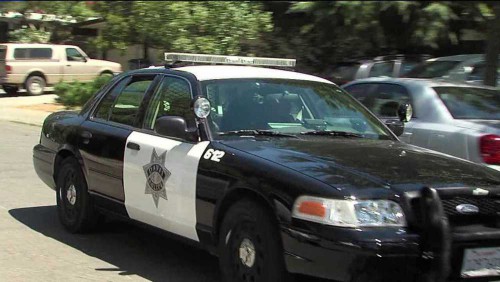
As we begin June, Davis is in the last month of the tenure of Bob Aaronson, who began in 2006 as Police Ombudsman and has since switched titles to Police Auditor. At some point, Davis is likely to revisit police oversight and likely to have more of a civilian component.
But as an article in Governing illustrates, the issue of civilian review boards is complex and experts believe “there are better ways for civilians to keep cops accountable.”
The Governing article looks at the passage of a voter-approved law in Los Angeles as its backdrop. They note, “Last week, voters in Los Angeles passed a measure widely condemned by Black Lives Matter, the ACLU of Southern California and other activist groups in favor of police accountability and civilian oversight.”
The measure supposedly “increases citizen oversight of the Los Angeles Police Department by allowing for the creation of an all-civilian disciplinary review board.” But this is something that the police union favors, and activists believe that “the law, called Charter Amendment C, will actually end up favoring officers accused of wrongdoing.”
“This was a deceptive measure,” says Peter Bibring, director of police practices for the ACLU of Southern California. “Most people thought this was about putting civilians in a position to hold officers accountable, and that’s not what it is.”
Governing points out that the measure “allows officers accused of misconduct to choose whether their case will be reviewed by the partial- or all-civilian board. Critics warn that giving cops the option to choose means they’ll inevitably go before whichever board is most likely to be more lenient.”
Los Angeles is by no means alone in struggling with how to keep cops accountable. Across the nation, localities are struggling to figure out how best “to formulate disciplinary review boards and how civilians might fit into that equation.”
Governing notes, “Of the 18,000 police departments in the country, only the large ones have any form of oversight, and only about 200 take the form of civilian review boards, says Samuel Walker, author of Police Accountability: The Role of Citizen Oversight.”
That makes Davis unusual among smaller cities, although it’s worth noting that Bob Aaronson also works for three other municipalities – Santa Cruz, Santa Rosa and Sonoma.
Civilian review boards are even more rare, and, while they all have their own sets of rules, responsibilities and procedures, Mr. Walker warns that they lack effectiveness and authority.
“The idea of civilian review always sounds appealing because it has this connotation of democratic governance,” says Tim Lynch, director of the libertarian Cato Institute’s Project on Criminal Justice. “But when you look into the way it actually works, it can be ineffective as far as serious accountability for police departments.”
Governing reports, “Lynch has carried out surveys of civilian review boards across the country and found them to be vulnerable to political manipulations, inadequate funding and staffing, slow-moving investigations and a lack of authority or jurisdiction to meaningfully investigate complaints.”
Governing uses L.A. as a case study. Governing, citing city reports, found that “civilians on L.A.’s disciplinary review board have consistently been more lenient to officers than the high-ranking police personnel.”
Peter Bibring speculates part of that might be that “all civilians on the board are required to have extensive experience as lawyers or mediators, effectively shutting out huge portions of the community.
“These members don’t represent the diversity of L.A. and especially not the communities that are being affected by police violence,” Mr. Bibring says.
Cato’s Tim Lynch says requirements for civilian membership throughout the country tend to produce boards biased in favor of officers.
“[The citizens on these boards] are sometimes required to have a law enforcement background, or they have connections of some kind with law enforcement,” he says. “They’re often not your typical business owner, what we would think of as people from the community.”
The L.A. police union claims that “Charter Amendment C is a way to fix a broken disciplinary system. They assert that officers on the current review board feel pressure to follow Chief Charlie Beck’s recommendations for discipline, making for an inherently unfair hearing. At least three officers have sued the department alleging retaliation for failing to heed Beck’s recommendation to terminate an officer during a disciplinary hearing.”
But Peter Bibring doesn’t buy that explanation. He argues that the L.A. “measure wasn’t crafted in concert with the activist organizations that have been pushing for reform. Opponents of the measure have excoriated it as a ‘backroom deal’ between city hall and the police union, trotted out at the last second during an election sure to have low turnout.”
Governing reports Mr. Lynch saying that, across the county, “civilian boards often lack the resources, power or jurisdiction to effectively oversee cases. Often, they carry out reviews or investigations only with the information provided to them by internal affairs (as happens in Los Angeles). That can be a problem if internal affairs chooses not to take on a large number of cases. Even where a board does have jurisdiction to dig into cases themselves, Lynch says it often doesn’t have the money to do much. And in most places, including L.A., civilian review boards can’t impose discipline on their own.”
“I think the evidence is thin that these review boards are an effective check on police departments,” Mr. Lynch says.
San Francisco’s citizen-led Department of Police Accountability, which investigates complaints against officers, “is a perfect example of a citizen oversight initiative that got stalled by several of the problems Lynch points to.”
Governing notes, “A lack of funding has created unsustainable caseloads for investigators at the office, which has led to delayed investigations into citizen complaints. Sometimes the delays were so severe that prosecutions were at risk since authorities only have 12 months to press charges after receiving a complaint.”
“San Francisco isn’t alone. Governing has reported on cities like Seattle that instituted civilian-led investigation units only to come under federal investigation for police abuses a few years later,” Governing writes.
So what is the answer? Mr. Walker “advocates against the concept of a civilian review board altogether. In his view, the best way to conduct investigations and discipline police is within the department…”
In his ideal model, “citizen oversight would take the form of an inspector general or police auditor who could oversee internal affairs’ investigations and have access to the kind of information the public can’t see.
“The important thing is the actual investigation,” Mr. Walker says. “Finding out: Did internal affairs make an effort to gather witnesses to this incident? Did they review medical evidence? Was everything handled in a timely fashion? That’s what an inspector general can figure out.”
This is similar to the model we have had in Davis for the last decade. But there are problems with this model as well.
First of all, we have little in the way of transparency. A person can file a complaint, it goes through the process, there can be serious problems with the department or the officer, and we then have to rely on the internal department to handle it.
What does that mean? In the case of Jerome Wren and Tatiana Bush, the couple found arguing outside Glacier Point Apartments in 2013, we only have a limited finding, from the internal review process that partly exonerates the officer. The police chief at the time opted against termination of the officer, but the city manager overruled him.
That sounds good if you have a strong and proactive city manager, but that’s not the case now. The current city manager signed off on former Sacramento County Sheriff John McGinness to investigate the Picnic Day incident, with little pushback by the city attorney or police chief.
The second problem is that the current system lacks a public access point. The current system basically requires filing a formal complaint with the department in order to trigger an investigation, but my experience is that people who feel wronged by the police are not comfortable going to the department that they feel wronged them and many were reluctant to meet with the police auditor.
They would often come to council or bodies like the Human Relations Commission, which are not set up to take and investigate complaints. In many cases, the HRC could only recommend that the individual go and file a formal complaint and talk with the auditor.
The third problem is that we have no way of monitoring what is happening with the department. The auditor did not give annual or twice annual reports to council – so it was hard for the public to monitor what was going on.
My view is that some sort of hybrid model might be ideal with a professional investigator, a council subcommittee, and a civilian component. Moreover, unlike the current system, the investigator needs to answer directly to the council rather than to the city manager in order to ensure transparency.
—David M. Greenwald reporting







Are we treating this situation like it’s some internal municipal inefficiency, or an external threat?
Rather than only guessing if some hybrid model reform model will work, perhaps we should consider some real alternatives, such as discussed and introduced in this article “What to Do Instead of Calling the Police is a must read.”